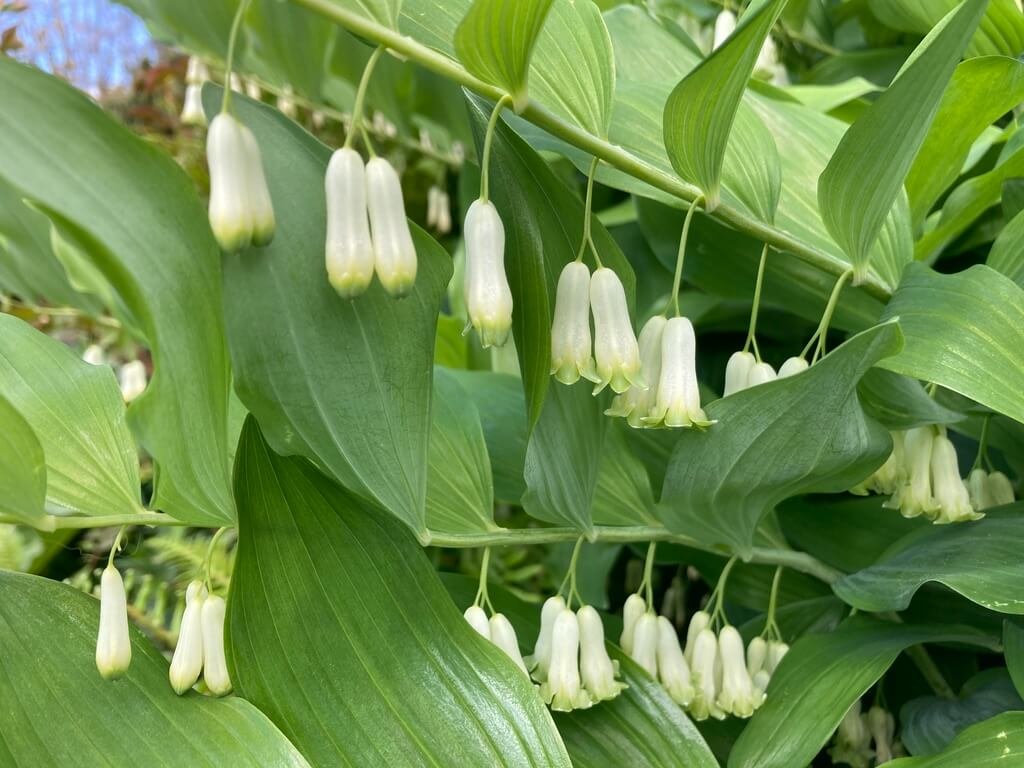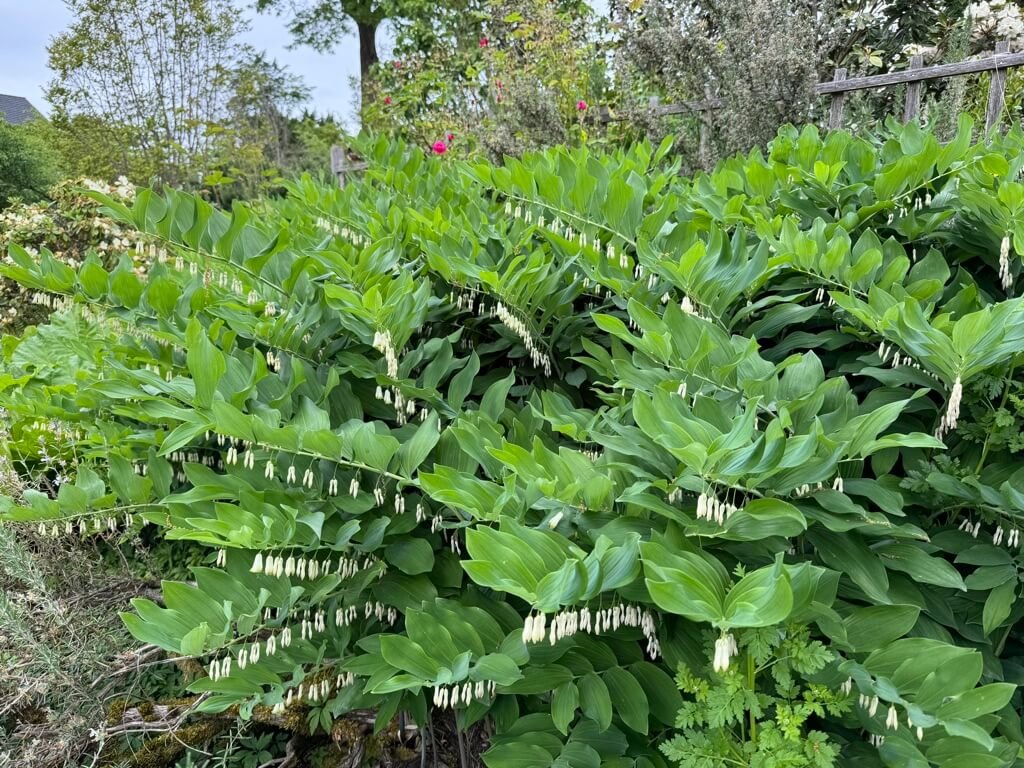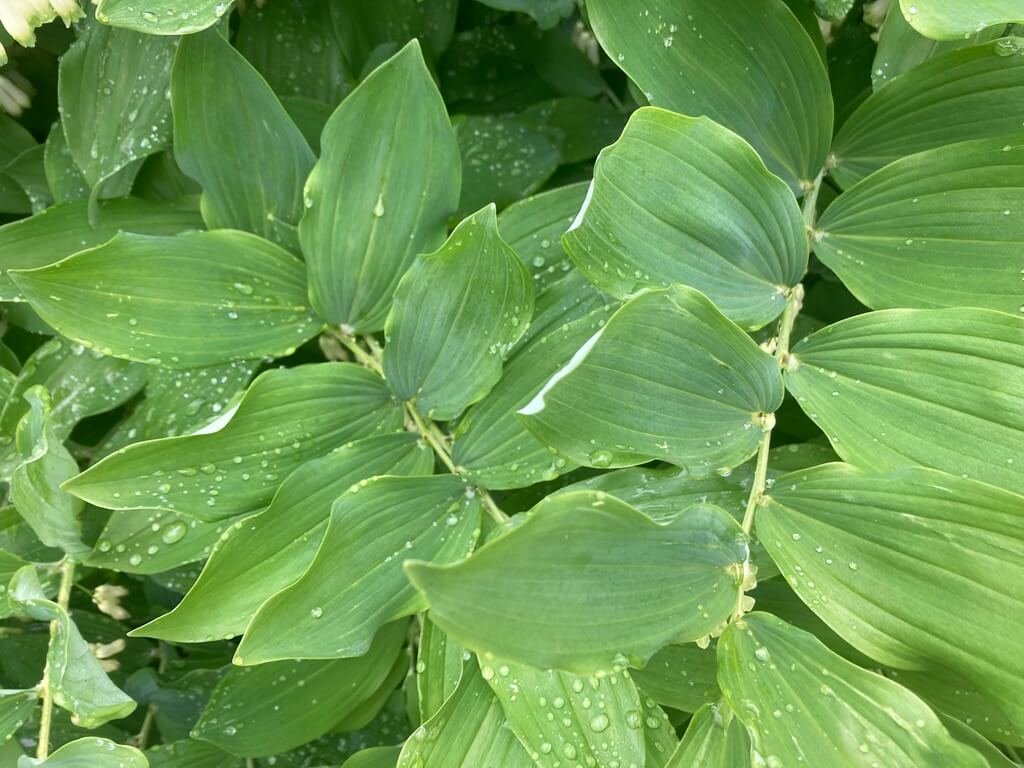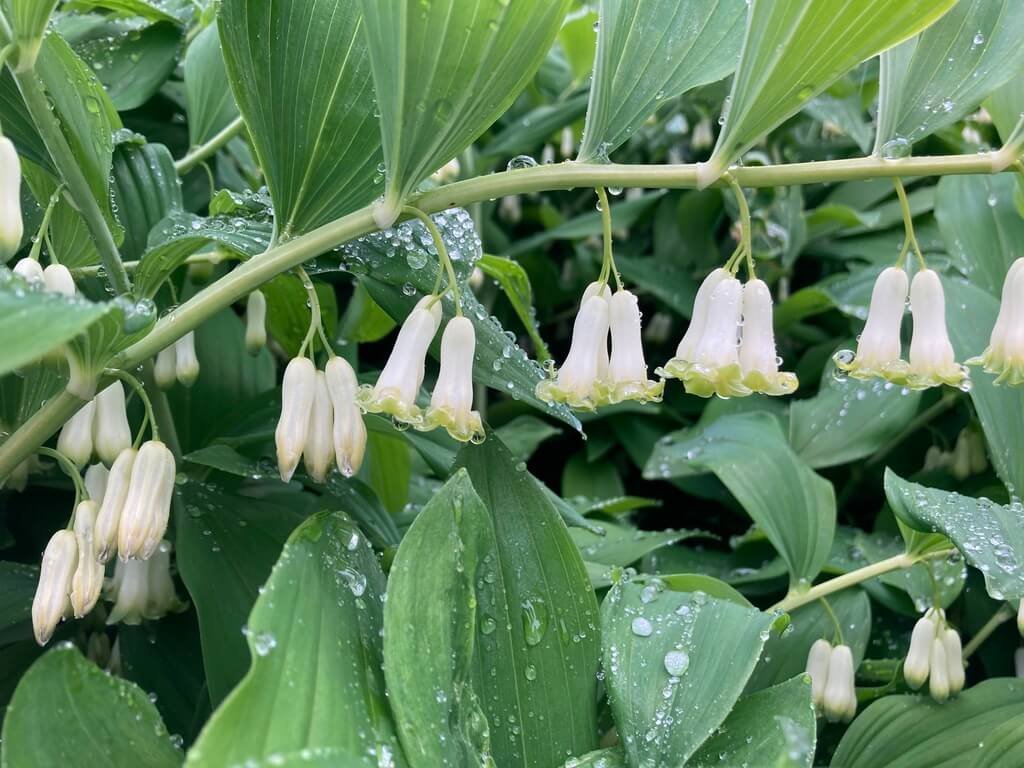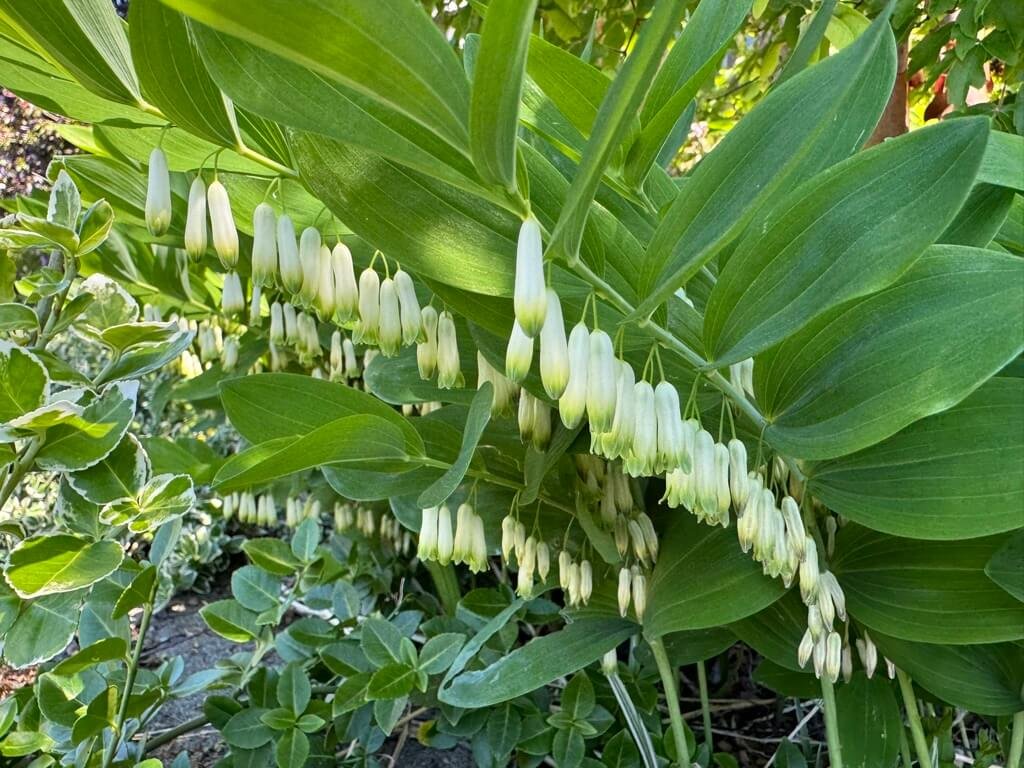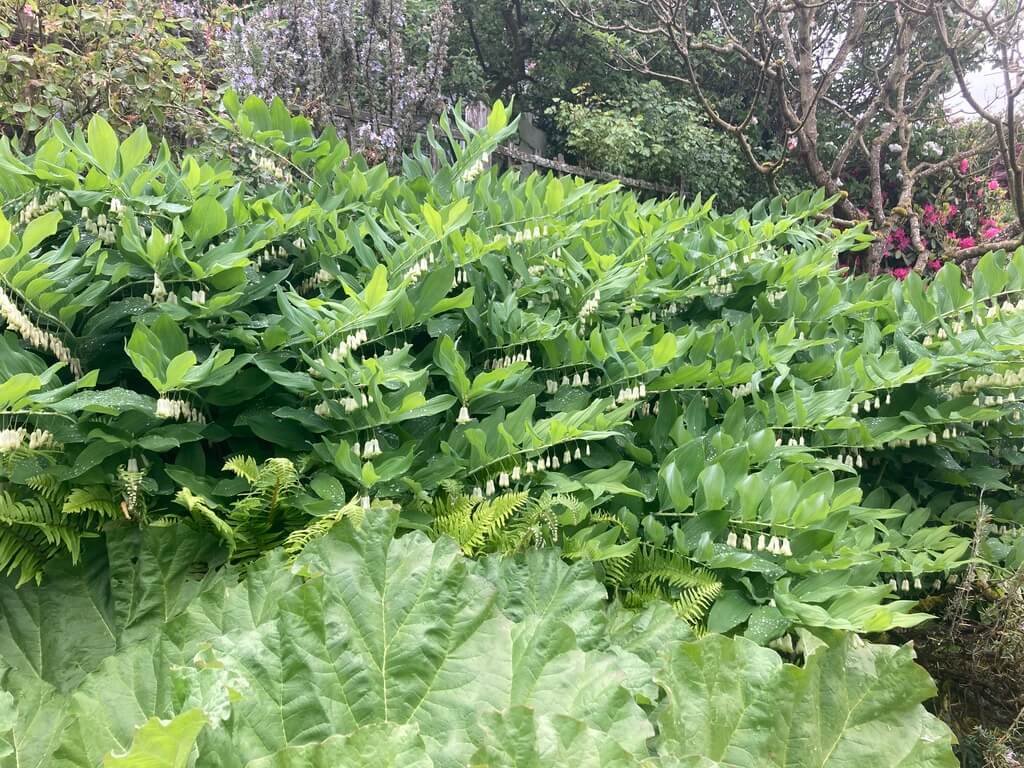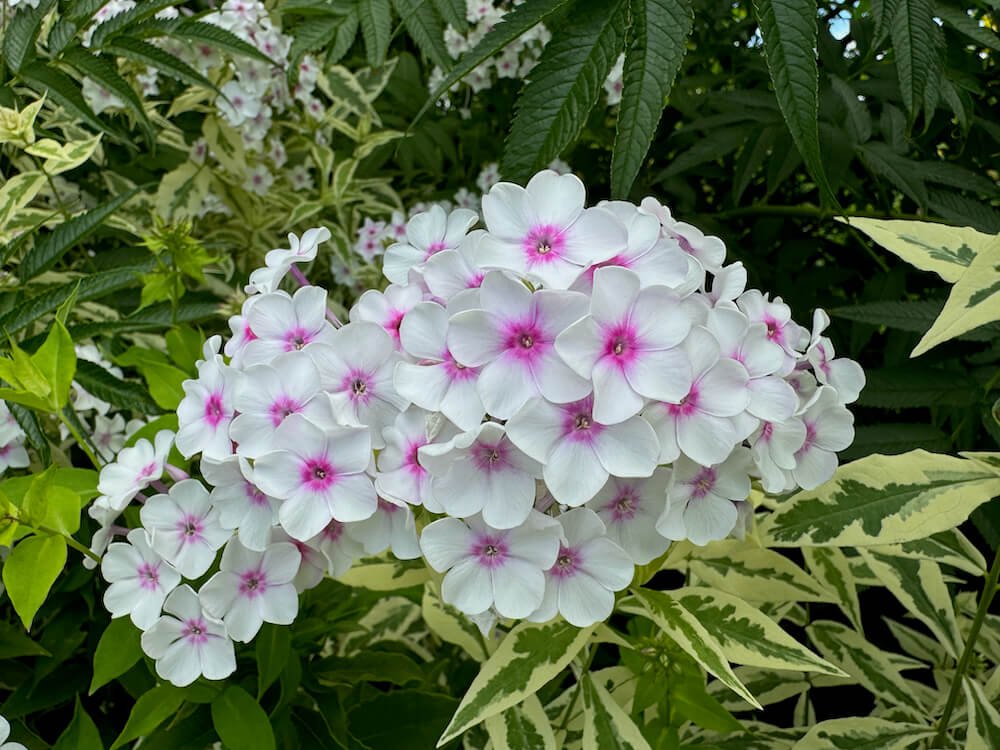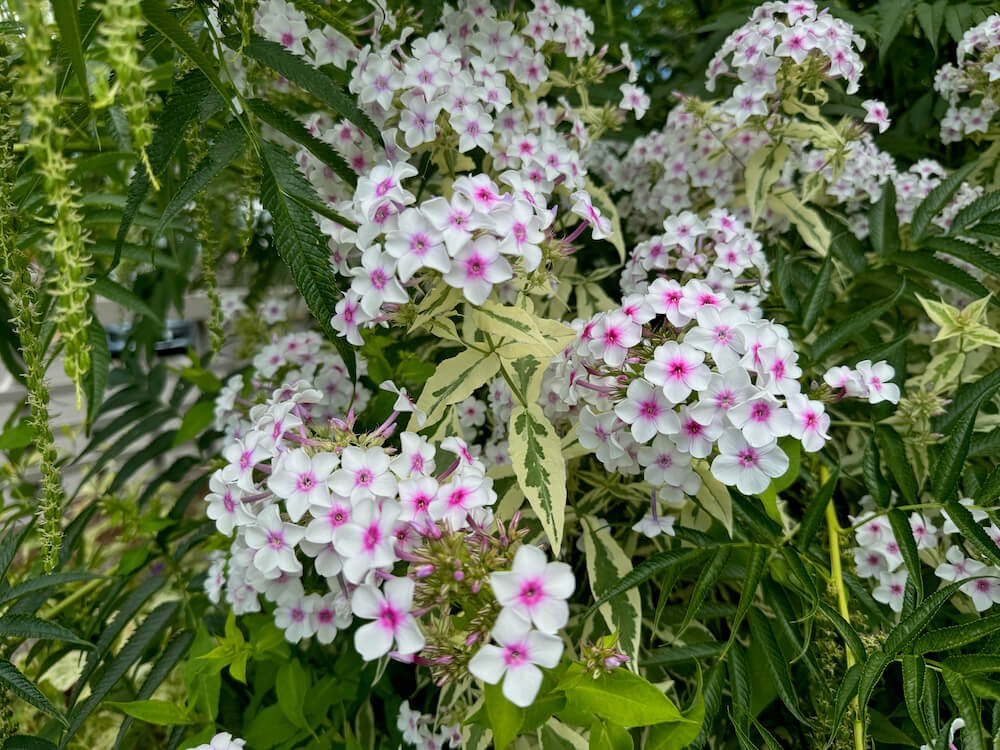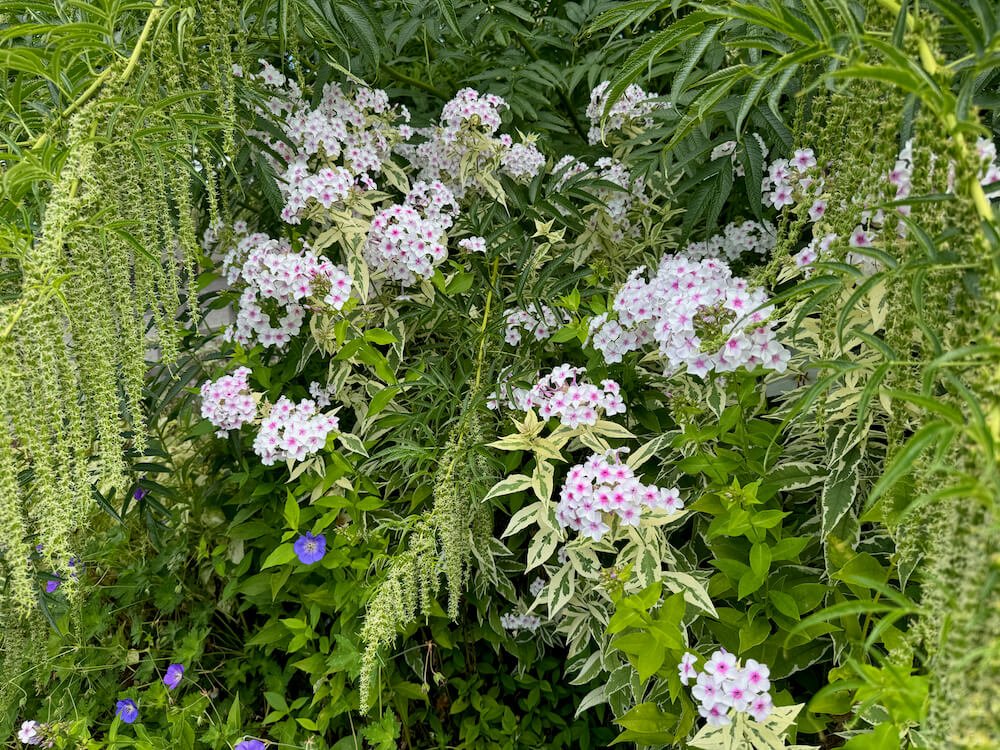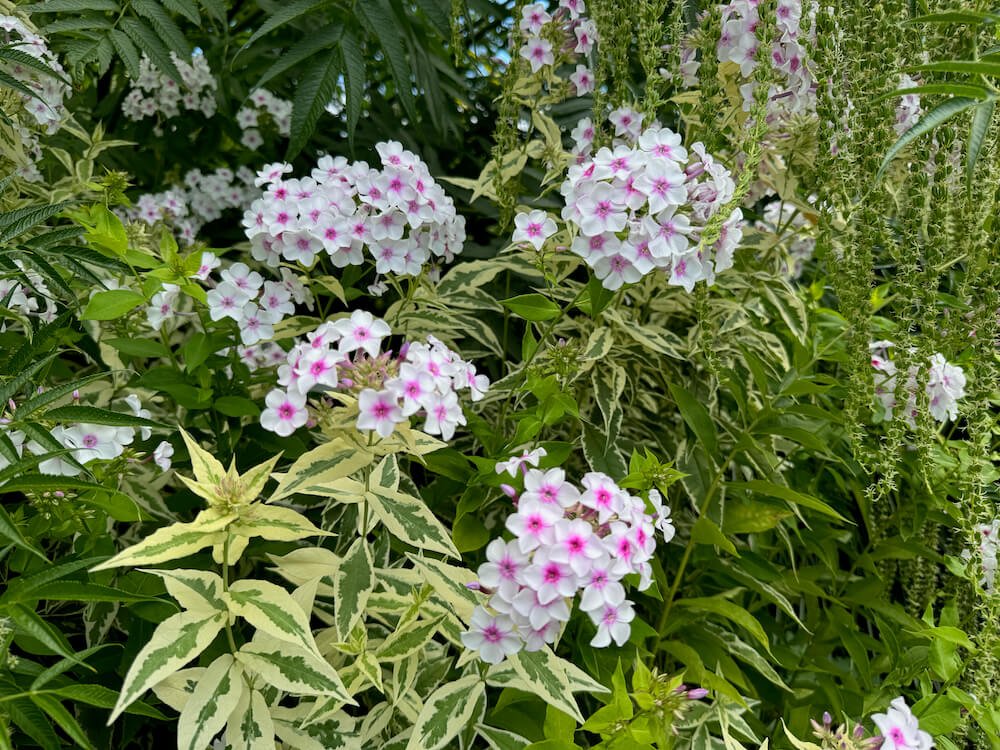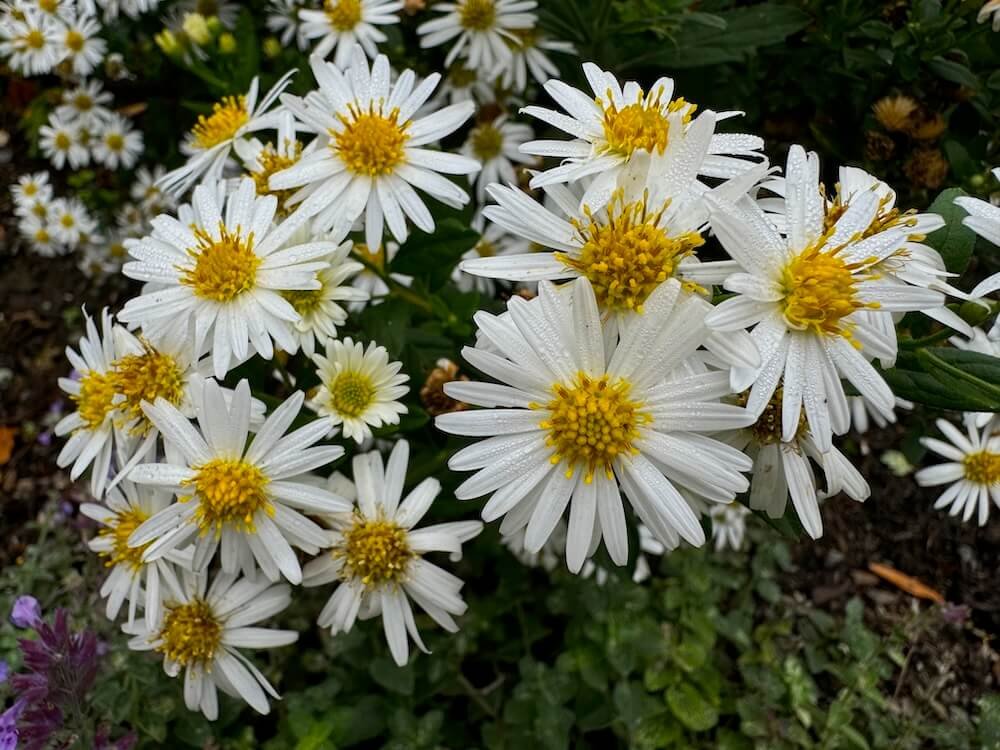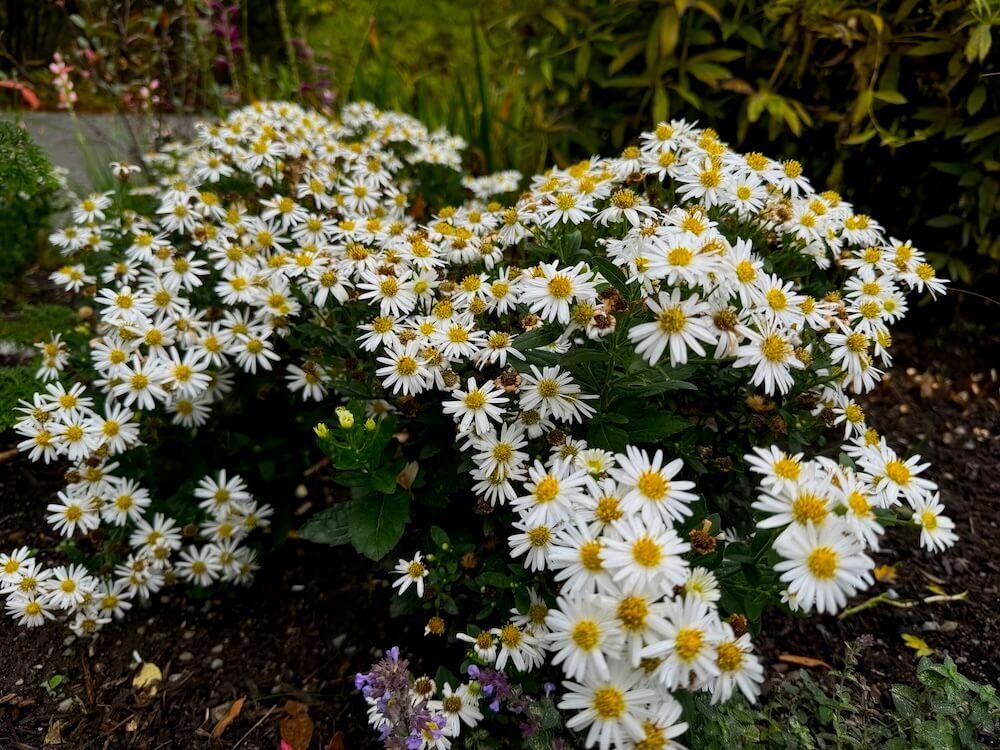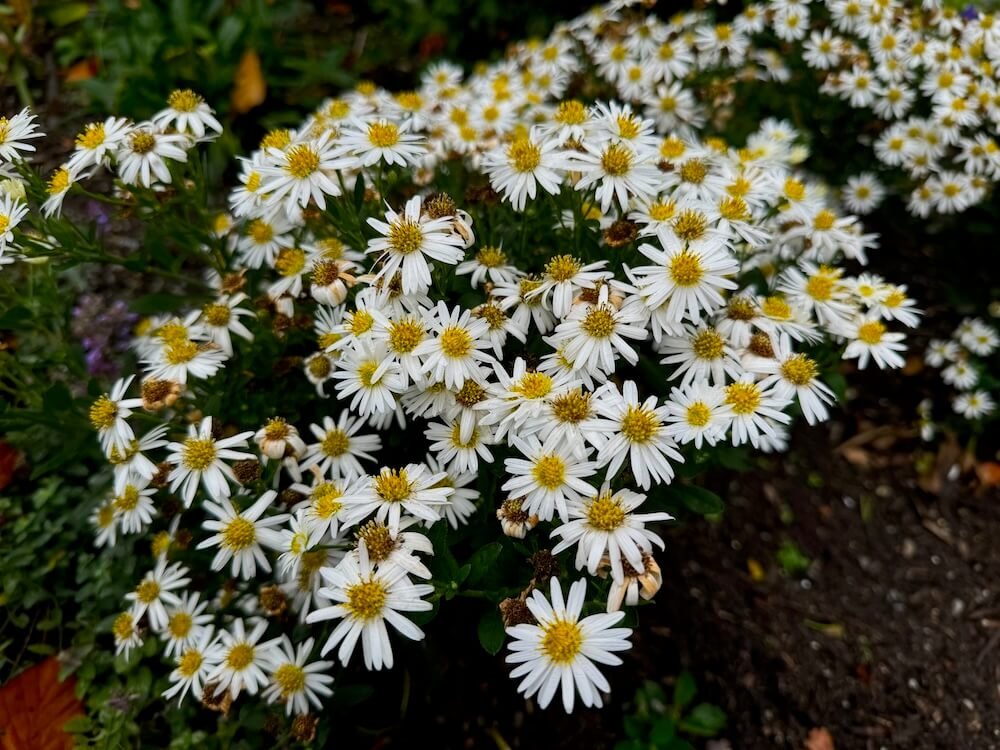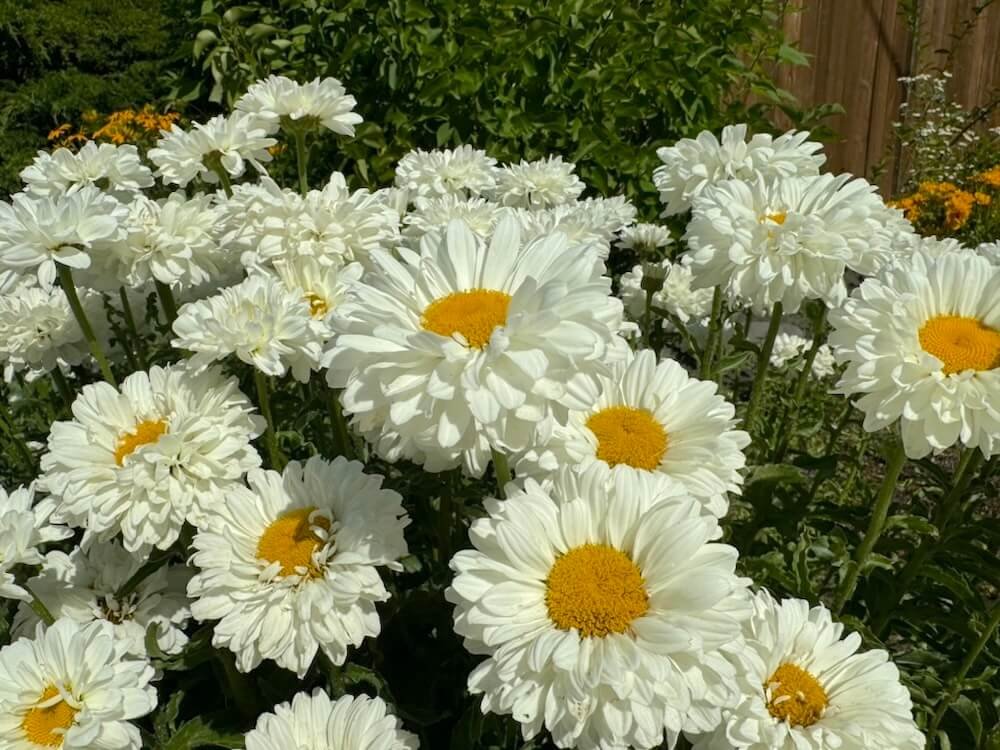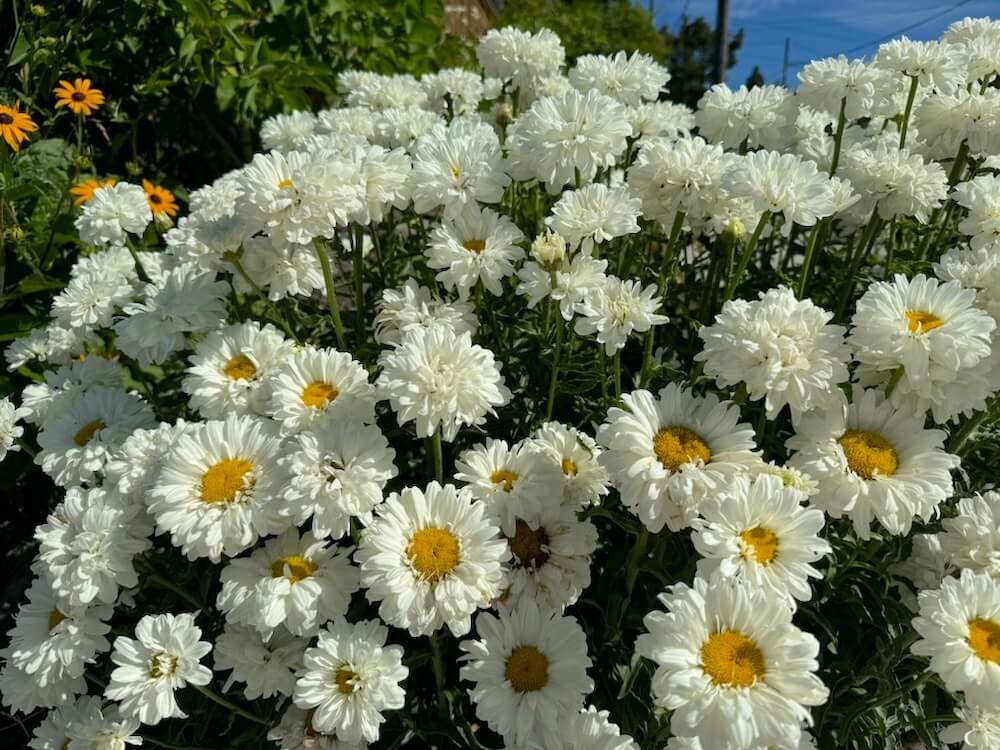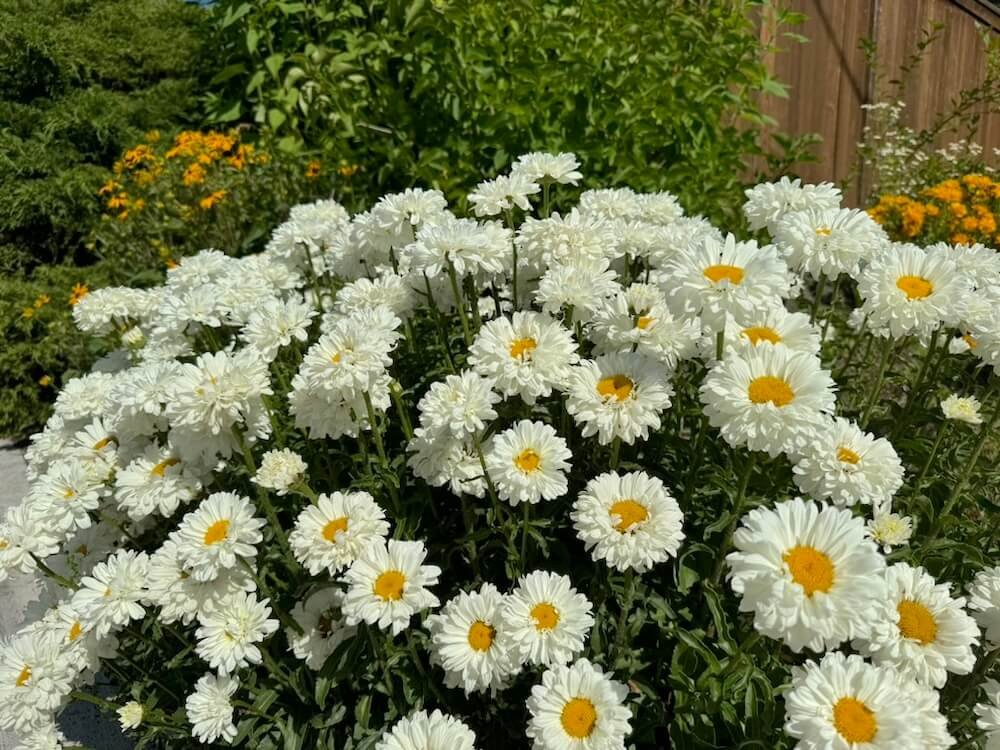 Image 1 of 3
Image 1 of 3

 Image 2 of 3
Image 2 of 3

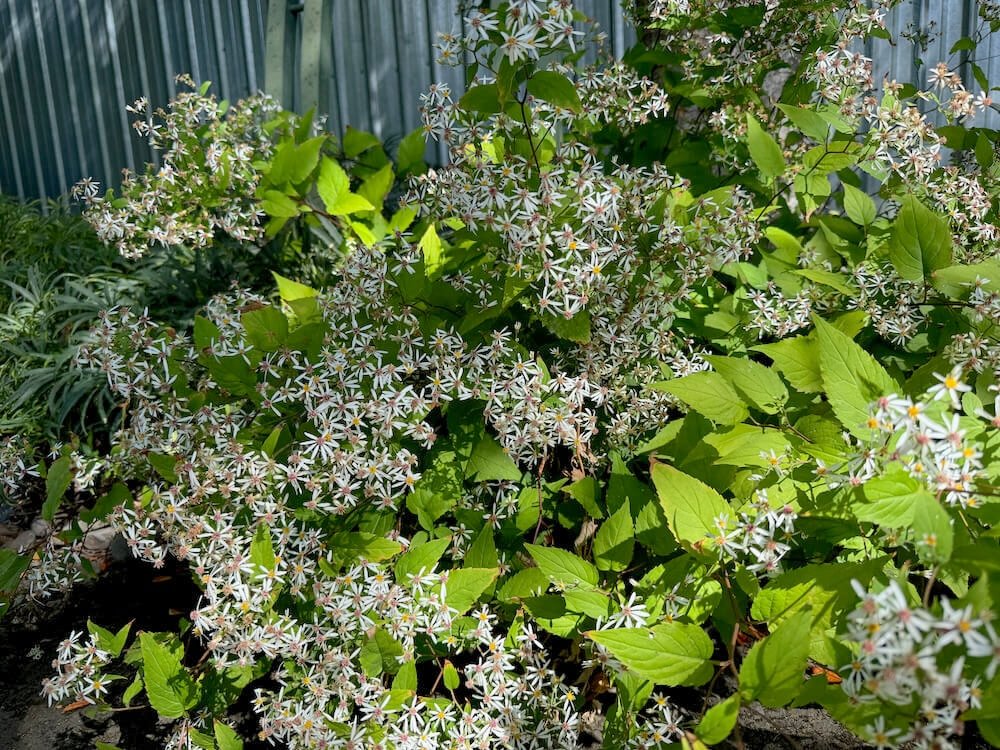 Image 3 of 3
Image 3 of 3




Eurybia divaricata 'Eastern Star' | Eastern Star White Wood Aster
DESCRIPTION
Eurybia divaricata 'Eastern Star’ is a compact, clump-forming perennial native to the eastern United States, particularly the Appalachian region. This cultivar is distinguished by its dark, nearly black, glossy stems and heart-shaped, sharply toothed leaves with prominent dark veins. In late summer to early fall, it produces an abundance of small, daisy-like flowers with white petals and yellow centers, creating a delicate and attractive display in shaded garden areas.
'Eastern Star' thrives in dry, shaded environments and is well-suited for groundcover, effectively filling spaces left by spring ephemerals. It is also beneficial for pollinator gardens, attracting butterflies and other beneficial insects. This cultivar was first discovered by Roger Rache in coastal Rhode Island and introduced by Canyon Creek Nursery.
DESCRIPTION
Eurybia divaricata 'Eastern Star’ is a compact, clump-forming perennial native to the eastern United States, particularly the Appalachian region. This cultivar is distinguished by its dark, nearly black, glossy stems and heart-shaped, sharply toothed leaves with prominent dark veins. In late summer to early fall, it produces an abundance of small, daisy-like flowers with white petals and yellow centers, creating a delicate and attractive display in shaded garden areas.
'Eastern Star' thrives in dry, shaded environments and is well-suited for groundcover, effectively filling spaces left by spring ephemerals. It is also beneficial for pollinator gardens, attracting butterflies and other beneficial insects. This cultivar was first discovered by Roger Rache in coastal Rhode Island and introduced by Canyon Creek Nursery.
DESCRIPTION
Eurybia divaricata 'Eastern Star’ is a compact, clump-forming perennial native to the eastern United States, particularly the Appalachian region. This cultivar is distinguished by its dark, nearly black, glossy stems and heart-shaped, sharply toothed leaves with prominent dark veins. In late summer to early fall, it produces an abundance of small, daisy-like flowers with white petals and yellow centers, creating a delicate and attractive display in shaded garden areas.
'Eastern Star' thrives in dry, shaded environments and is well-suited for groundcover, effectively filling spaces left by spring ephemerals. It is also beneficial for pollinator gardens, attracting butterflies and other beneficial insects. This cultivar was first discovered by Roger Rache in coastal Rhode Island and introduced by Canyon Creek Nursery.
-
Family: Asteraceae
Height: Approximately 21 inches
Width: Up to 36 inches
Foliage color: Deep green with dark veins; stems are dark green to nearly black
Flower color: White with yellow centers, aging to dusky rose
Bloom time: September to October
Light requirements: Partial to full shade
Water requirements: Moist, well-drained soil
Maintenance: Low; spreads by rhizomes and seeds
Growing zone: USDA zones 4 to 9
Wildlife attractors: Attracts butterflies; seeds are enjoyed by songbirds like goldfinches and juncos





